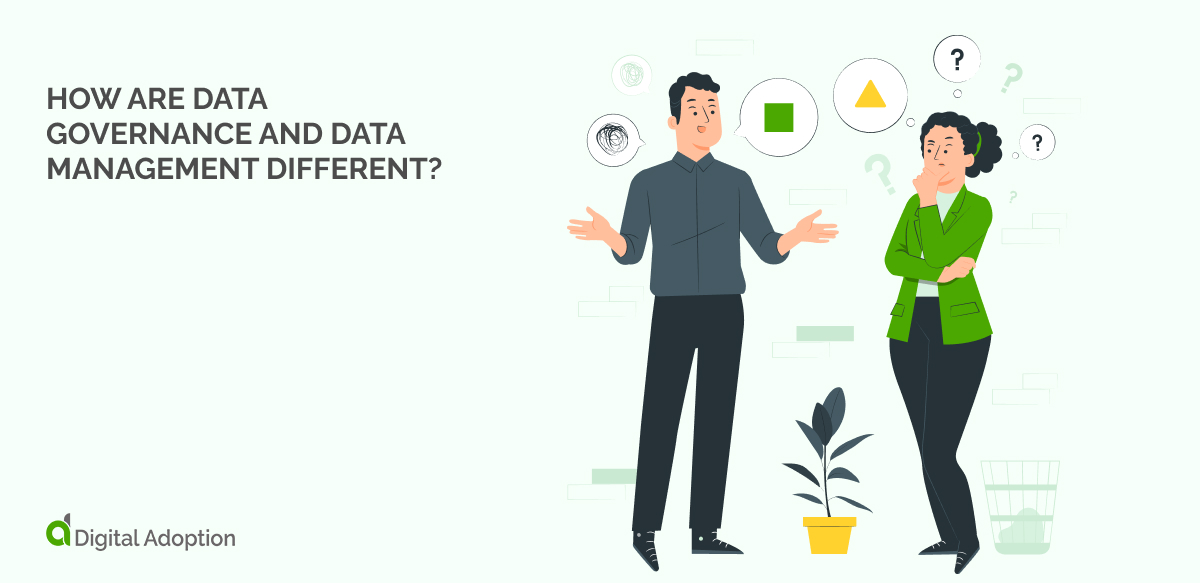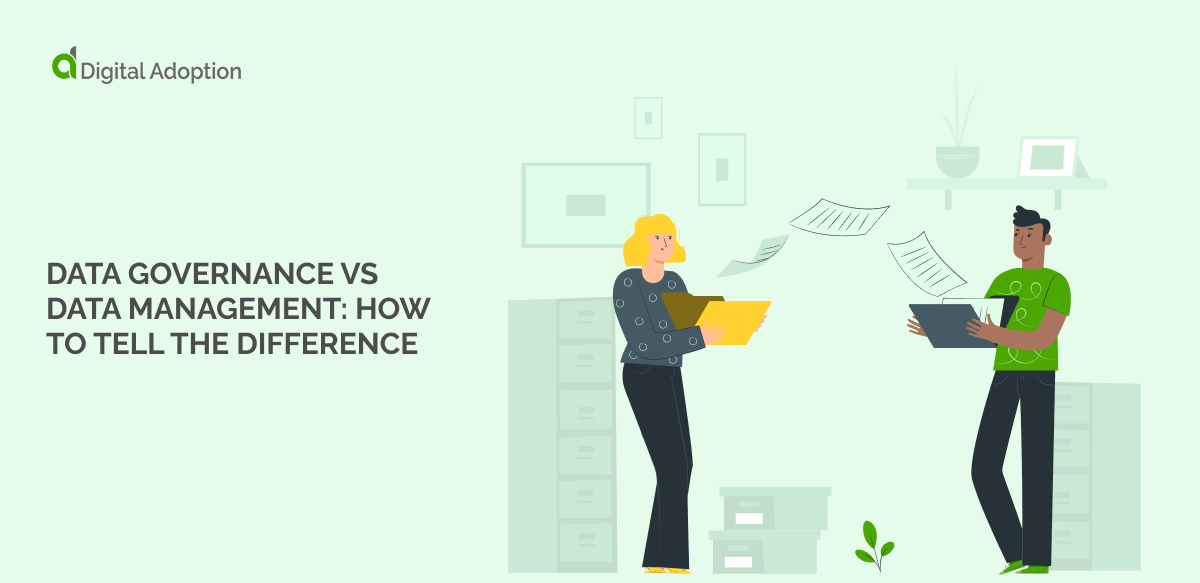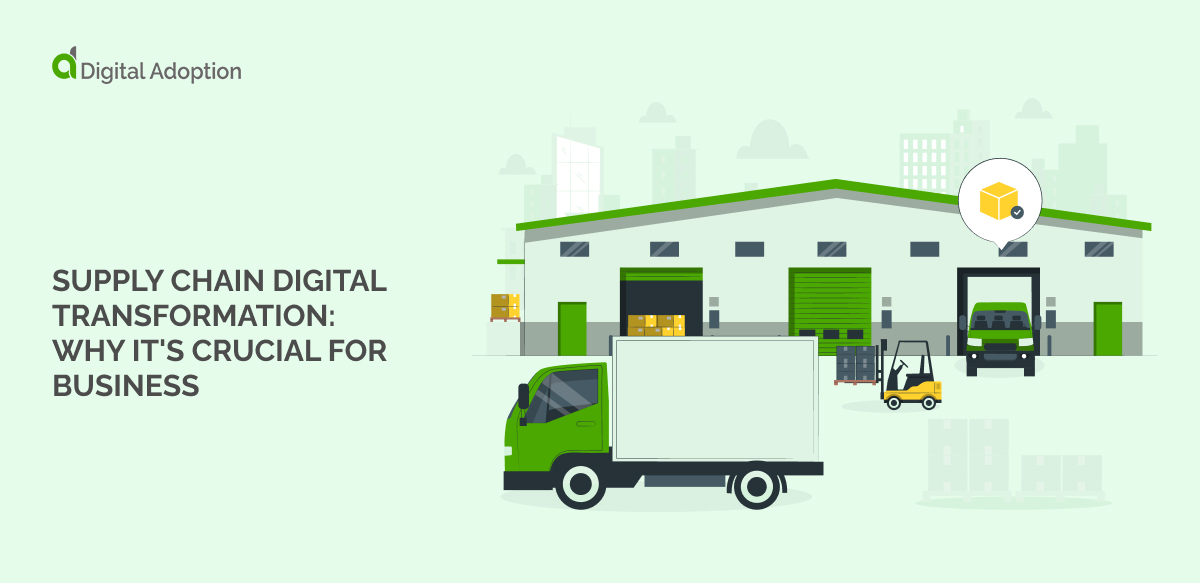Data governance establishes the structures, principles, and approaches that companies use to make decisions about all relevant data issues. By contrast, data management is about the practices and tools to make data available and useful. Both areas aim to make data available, secure, and efficient. But the technical practices of data management rely on the policy and principles of data governance.
This article will introduce and compare these two important areas. Data governance and data management are both important elements of a healthy digital ecosystem – they are at the heart of a successful digital transformation. By the time we’re through, you’ll have no trouble telling the difference!
What is data governance?
Data governance is one specific component of organizational governance, risk, and compliance procedures. Data governance tries to achieve the following goals:
- Reliability of access, retrieval, and permissions
- Compliance with relevant legal frameworks
- Security of all data within an organization.
There are many tools to make this happen. Good data governance could be achieved through:
- A clear template for decision making
- Explicit structures of accountability
- Creating strong methods for harmonizing data across an organization.
These issues are important for organizations of any size. However, strong data governance is absolutely essential in larger organizations. If a company has a range of different sites, tech sprawl, and many separate business units, it becomes very hard to know who is responsible for data policies.
Even the simple matter of who is responsible for decision making might be unclear to regular employees. Indeed, 2020 Research from Deloitte suggests that this is a problem for “a surprising number of organizations”. As a result, governance optimization should be a part of any digital transformation program.
What is data management?
Data management works on the practical side of data. Data management helps companies to collect, store, organize, protect, and maintain data throughout its lifecycle.
Just like data governance, data management helps to make sure that all data in a company is high-quality, available, reliable, and useful. However, data management does this through different activities. Those might include:
- data integration
- data quality assurance,
- data storage
- data security
- data privacy
- data migration
- data strategy development.
Effective data management enables organizations to make informed decisions, identify opportunities, and address challenges. It also contributes to improved operational efficiency, better customer experiences, and enhanced competitiveness in the market. As data continues to grow in volume and complexity, proper data management becomes increasingly vital for businesses and institutions.
Data management also is one of the core practical competencies that will help to accelerate digital transformation.
How are data governance and data management similar?

Data management and data governance are closely related concepts. They work together to ensure the proper handling, quality, security, and usability of data within an organization. While they have distinct focuses, they share similarities and often overlap in their objectives and practices.
For example:
- The two areas have Common Goals. Both data management and data governance aim to improve the overall quality, accuracy, and reliability of data. They strive to ensure that data is available, accessible, and meaningful to support business processes, decision-making, and strategic initiatives.
- They are both necessary for solid Compliance and Regulations. Data governance plays a significant role in ensuring compliance with industry regulations, legal requirements, and data protection laws. Data management supports these efforts by implementing the necessary controls and processes to handle data appropriately.
- Both teams are fundamentally collaborative. They require collaboration across various departments and roles within an organization. Effective communication and coordination are essential to ensure that data-related practices are standardized and followed consistently.
How are data governance and data management different?
So – there’s plenty of similarities between these areas, but there are also differences worth being aware of. These are down to their focus, scope, responsibility, and where the responsibility for decision-making lies:
- The two areas focus on different parts of the data lifecycle. While data management focuses more on the technical and operational aspects of handling data, data governance is more concerned with establishing policies, standards, and controls.
- The scope of each principle is different. The key foundations of data governance go a lot deeper than those of data management. Data management is narrower in scope and revolves around technical processes.
- The responsibility for management and governance should be handled by separated teams (or individuals). This means that decision-making is very different – decisions about data management can be made on the fly by technical experts. Data governance changes will take a longer period of time, with more signs offs from different parts of the company’s leadership team.
Data quality relies on both!
Overall, you shouldn’t make a choice between data governance and data management. A data-driven organization will rely on both disciplines to achieve data integrity, break down data silos, and ensure that data is always used effectively.
As a result, there’s no doubt that both areas require significant investment. As we’ve seen:
- Data governance gives the overarching guidelines for accountability, authority, and direction.
- Data management implements practices that make sure the governance policies are followed effectively.
- The two areas have distinct overlaps in their goals and the specific areas they are concerned with.
- However, management and governance involve slightly different scopes, processes, and personnel.
The two concepts complement each other, creating a holistic approach to managing and governing data effectively. In short, don’t make “data governance vs data management” into a fight to the death – the only loser will be your business!













